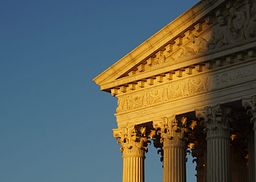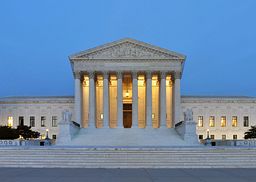PA Programs Celebrate Juneteenth
While the Emancipation Proclamation laid the foundation to end slavery in 1863, it wasn’t until more than two years later, on June 19, 1865, that the promise of freedom was fully realized, when Major General Gordon Granger announced the end of the Civil War and slavery.
More than 150 years later, people across the country are still speaking out, perhaps louder now than ever, and taking action to finally end the systemic racism that continues to oppress and marginalize Black people.
In an article for MedPage Today, LaShyra Nolan wrote:
“As health care professionals and students, it should be a vital imperative for us to understand history as it relates to the context of our patients’ and community members’ lives. Our roles as healers and important pillars in our community make it so that we have a heightened responsibility to understand history and the medical institution’s role in it. We can no longer ignore historical happenings, good and bad, that shape our society today — because this history is deeply connected to the humanity of each of our patients and community.”
Celebrating Juneteenth visibly and meaningfully is one tangible way to continue the push toward equality and justice for all, and universities and PA programs across the country are highlighting the importance of Juneteenth in various ways.
According to Harry Pomeranz, MS, PA-C, distinguished lecturer and didactic coordinator at the City University of New York (CUNY) School of Medicine, classes at all 25 colleges in the CUNY system are cancelled today in observance of Juneteenth. Earlier this month, their students, faculty, and staff participated in a two-hour town-hall conversation to discuss racism and how they can work together to make changes.
In addition, students participated in a lecture on racism and have been encouraged to contribute a fact, video, link, or comment relating to racism to a Google Doc as a shared learning experience for students across the CUNY system. Students are also putting together an informative video using TikTok’s Don’t Rush Challenge theme.
At Wagner College in Staten Island, New York, President Joel W. Martin, PhD, said that Juneteenth will be observed with “respect and action.” On June 1, he announced that he would “suspend all normal work on June 19th, with the exception of essential campus operations, so that all staff and faculty can focus on race and injustice, to take time to reflect, connect, mend, and engage with this subject in an intentional and focused way.”
The PA program, led by Program Director Tracy Jackson, EdD, MA, PA-C, is taking action as well. The program has implemented testing through Project Implicit to measure unconscious bias — “attitudes and beliefs that people may be unwilling or unable to report.” To inform curriculum development, the program has been using the book Race Matters by author and activist Cornel West, PhD, professor of the practice of public philosophy at Harvard University and professor emeritus at Princeton University.
Jackson said that racism is a public health issue and an important factor in the social determinants of health. She believes that modeling equity in education is important to develop PAs who will better serve their communities.
To that end, PAEA members are encouraged to visit the Anti-Racism and Diversity & Inclusion channels in the Digital Learning Hub to access and share resources that PA educators can use in their curriculum. We are also working to create platforms for dialogue, such as virtual town halls and webinars, where PA students and faculty can share their experiences with racial injustices, as well as anti-racism curriculum to educate both faculty and students. And in early July, PAEA will release a new diversity toolkit designed to help programs develop and evaluate goals and objectives related to diversity and inclusion.
Together, we can ensure the next generation of PAs is prepared to provide holistic and compassionate care to diverse patients.




